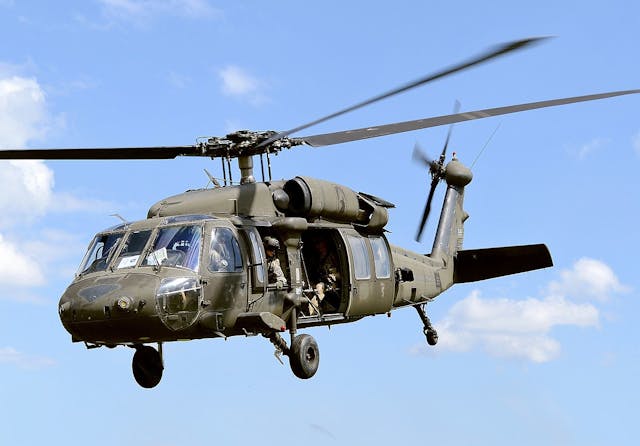UH 60 Black Hawk: Secret Functions and Technologies
UH 60 Black Hawk: Secret Functions and Technologies
Blog Article
The Influence of Sustainable Practices on the Future of Aircraft Procedures and Emissions Decrease
As the aviation industry encounters increasing scrutiny over its environmental impact, the fostering of sustainable methods emerges as an essential path toward future aircraft operations and exhausts decrease. Technologies in sustainable air travel gas and improvements in hybrid propulsion innovations stand at the center of this change, appealing significant decreases in greenhouse gas discharges.

Review of Sustainable Practices
Lasting methods in airplane operations incorporate an array of strategies targeted at minimizing environmental influence while preserving operational effectiveness. These techniques are important in the aviation industry's commitment to reducing its carbon footprint and sticking to international environmental criteria. Trick efforts include maximizing trip paths to minimize fuel usage, improving upkeep procedures to ensure aircraft operate at peak effectiveness, and executing advanced technologies such as winglets and light-weight materials that improve the rules of aerodynamics.

Educating and engaging staff on sustainability methods also play a vital duty, promoting a culture of environmental responsibility within companies. Generally, the integration of these sustainable techniques not only assists reduce exhausts yet also boosts the lasting viability of the aeronautics field, ensuring it meets the demands of both customers and regulatory bodies while adding to worldwide sustainability goals.
Innovative Fuel Alternatives
Many cutting-edge fuel choices are becoming pivotal remedies to decrease the air travel industry's dependence on conventional nonrenewable fuel sources. Among these choices, Lasting Air travel Fuels (SAFs) have acquired significant focus due to their possible to lower lifecycle greenhouse gas exhausts by approximately 80% compared to conventional jet fuels. SAFs are originated from various feedstocks, consisting of waste oils, agricultural residues, and also algae, making them a functional option for the industry.
Another appealing option is hydrogen fuel, which, when utilized in gas cells, produces just water vapor as a result. Furthermore, electric propulsion systems are being explored, leveraging battery technology to power aircraft.
Lastly, biofuels obtained from biomass are being explored, using a sustainable option that can be mixed with traditional gas. Collectively, these ingenious fuel alternatives represent an important step towards accomplishing a lasting aviation ecological community, straightening with global emissions decrease targets and improving the sector's ecological stewardship.
Technological Innovations in Aviation

How can technical innovations improve the future of aviation? The assimilation of advanced innovations is critical in changing airplane operations, improving performance, and decreasing discharges. Advancements such as hybrid and electric propulsion systems go to the leading edge, encouraging substantial decreases in gas intake and greenhouse gas discharges. These systems leverage improvements in battery technology and power monitoring, making it possible for aircraft to operate with a reduced environmental footprint.
In addition, the implementation of sophisticated materials, such as light-weight composites, adds to boosted aerodynamics and fuel efficiency. The use of synthetic intelligence and device learning in flight procedures enhances route planning and minimizes gas shed by enabling real-time adjustments based upon climate and web traffic problems. In addition, the advancement of autonomous and remotely piloted aircraft systems stands to revolutionize cargo and passenger transportation, possibly enhancing efficiency while decreasing human error.
Moreover, sustainable air travel technologies, including advanced air website traffic monitoring systems, can improve procedures and reduce congestion, leading to reduced exhausts during trip. browse around these guys These advancements collectively stand for a standard shift in air travel, promising a future where sustainability and functional performance are intertwined, consequently supporting the sector's dedication to reducing its ecological influence.

Regulative Framework and Compliance
Due to the growing focus on environmental stewardship within the air travel field, the regulatory structure regulating airplane procedures is advancing to promote sustainable practices. Regulatory bodies, such as the International Civil Air Travel Company (ICAO) and numerous national air travel authorities, are introducing rigorous standards aimed at minimizing exhausts and boosting operational effectiveness.
These policies often include the fostering of Lasting Aeronautics Gas (SAF), which has actually been identified as a crucial component in achieving lower carbon impacts. Compliance with these guidelines needs airlines to carry out operational practices and innovative innovations, such as enhanced flight paths and improved air website traffic management, to reduce gas consumption.
Furthermore, the enforcement of emissions trading plans and carbon countering initiatives is coming to be increasingly common, engaging airline companies to check and report their discharges accurately. Non-compliance can result in substantial penalties, hence pushing operators to prioritize sustainability in their service versions.
Ultimately, the evolving regulatory landscape not just drives advancement and financial investment in eco-friendly innovations however additionally cultivates a culture of responsibility within the air travel sector. As these frameworks remain to create, the emphasis on lasting methods will be indispensable to achieving the field's lasting ecological goals.
Future Fads in Airplane Procedures
As the aeronautics sector adapts to a significantly strict governing setting, future patterns in airplane operations are established to focus on ingenious remedies that further boost sustainability and performance - uh 60. Trick developments will likely include the fostering of sophisticated air web traffic monitoring systems, which make use of real-time data and expert system to find optimize trip courses, decreasing gas usage and exhausts
One more considerable trend is the enhanced integration of lasting aeronautics fuels (SAFs) These alternatives to traditional jet fuel, stemmed from sustainable sources, can substantially lower lifecycle greenhouse gas discharges. The sector's commitment to SAFs will likely increase as airlines work together with fuel manufacturers to make sure availability and cost-effectiveness.
Additionally, the press towards electrification and crossbreed propulsion systems is obtaining energy. Arising aircraft layouts will certainly include these innovations, providing quieter and a lot more reliable operations, check my site particularly for short-haul trips.
Final Thought
The adoption of lasting aviation gas, combined with advancements in electrical and hybrid propulsion systems, is crucial for minimizing lifecycle greenhouse gas exhausts. Optimizing trip paths and embracing innovative innovations add to a quieter and a lot more eco friendly aviation industry.
Developments in lasting aviation gas and improvements in crossbreed propulsion technologies stand at the leading edge of this change, appealing substantial decreases in greenhouse gas exhausts.Many innovative fuel choices are arising as critical remedies to minimize the air travel sector's reliance on standard fossil gas - uh 60. Amongst these choices, Lasting Air travel Gas (SAFs) have actually acquired considerable attention due to their prospective to decrease lifecycle greenhouse gas discharges by up to 80% compared to traditional jet gas.One more substantial trend is the enhanced integration of sustainable air travel fuels (SAFs) The fostering of lasting aeronautics fuels, combined with developments in hybrid and electrical propulsion systems, is crucial for decreasing lifecycle greenhouse gas emissions
Report this page